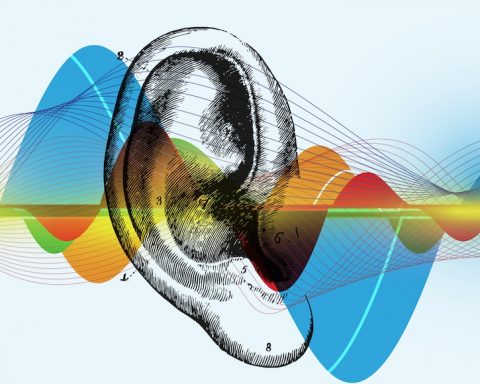May is mental health awareness and skin cancer awareness month, which are widely marked on the Rock, but there are other conditions whose prevention or treatment is given special coverage this month.
Here are discussed the most common ones, with different grades of rarity and severity.
Celiac disease is a long-term but usually not life-threatening condition affecting intestinal digestion. It is caused by allergy or intolerance to gluten, a protein found in cereals like wheat, barley and rye. In genetically predisposed individuals, exposure to gluten sparks anomalous autoimmune responses.
Diagnosis is not always straight-forward to achieve unequivocally, but early screening can help with mild symptoms easily mistaken with other digestive issues. Early symptoms in babies and children are steatorrhea and failure to grow.
Celiac disease must be told apart from wheat allergy, a rare but more serious condition which cannot be neutralised with gluten-free products consumption alone.
Treatment so far consists in a gluten-free diet, to avoid and prevent bloating, lethargy, anaemia, hyposplenism, vitamin and minerals deficiency, and complications like intestinal cancer or lymphoma, which are nevertheless rare.
In regions alien to traditional wheat farming, like south-eastern Asia where rice is the staple cereal, or Mesoamerica, where corn is, celiac disease still exists but it doesn’t manifest until the ingestion of wheat, barley and rye, European staples.
Celiacs can source their carbs from non-cereals like quinoa, amaranth and of course potatoes, pumpkins and bananas. Always seek medical advice before starting a carb-free diet.
Visit:
www.nationalceliac.org, www.celiac.org, www.coeliac.org.uk, www.beyondceliac.org.
Ehlers-Danlos syndromes are a group of separate but related connective-tissue disorders, occurring because of variation of a number of genes that affect the structure or production of collagen, and it can be potentially severe or life-threatening.
Early symptoms that may prompt you to seek medical attention for your baby or toddler are delayed walking beyond 18 months, and a preference for bottom-shuffling instead of crawling. Another alarm bell can be your toddlers’ habit to stick their tongue out and, so doing, reach comfortably their nose with its tip (Gorlin’s sign).
Later, it can show through joint hyper-flexibility and skin hyper-extension, arthralgia, myalgia, scoliosis, kyphosis, translucent skin, heels’ piezogenic papules, hyper-mobile fingers and toes, bendable thumbs.
There is no cure for this, but once a diagnosis is achieved through genetic testing, treatment is available for each of the symptoms and co-morbidities, like cardio-valvular disease, brittle cornea, keratoconus, macular degeneration, hiatus hernia, fragile skin, muscle hypotonia, periodontitis, and pregnancy complications.
There are different degrees of EDS and most patients can lead a normal life with it. Some have made of their skin hyper-elasticity a career in showbiz. Italian virtuoso Niccolò Paganini is believed to have suffered from a mild form of EDS making his fingers extra-long and agile on the strings.
Visit: www.ehlers-danlos.org
Cystic Fibrosis is a genetic disorder caused by gene mutation or deletion that affects mostly the lungs, but also pancreas, liver, kidneys and bowels, for which there is no cure, and which halves life expectancy in the developed world.
It is mostly common in individuals of north European ancestry, where about a quarter of the population are estimated to be carriers.
Africans and Asians seem to be almost immune to this mutation, and some studies suggest that it may be related to evolutionary exposure to dim lights and cold temperatures, although other populations from subarctic climates like Siberia, Alaska or Greenland, seem to be immune. Others suggested it may be linked to the mutations of eye colour, in other words if you have blue or green eyes you may have higher chances to be a carrier, but no theory has so far satisfactorily returned unequivocal proof.
Symptoms manifest in early childhood with poor growth and flimsy weight despite healthy appetites, frequent chest infections with sticky mucus and the characteristic salty-tasting and smelling skin.
Parents’ suspicions about salty skin may be confirmed by genetic testing. Preventive screening is available to warn prospective parents who are both carriers about the 1-in-4 possibility to produce an affected child, with a ratio akin to thalassaemia.
Most damage to the organs is caused by blockage from thickened secretions that can lead to lungs failure. Pulmonary physiotherapy is the key to support an improved quality of life. Lung transplant is an option for those worst affected with respiratory symptoms.
Visit: www.cff.org and www.lung.org.
Huntington’s disease is a degenerative inherited disorder resulting in the accelerated demise of brain cells, manifesting itself in the early stages with subtle motor skill problems, lack of hand-eye coordination, and mild loss of balance, not always paired with decline in cognitive abilities.
Onset can be as early as in one’s twenties, and it can be difficult to diagnose it, if one is unaware that the genetic condition is running in the family. Jerky out-of-control movements are an early symptom to pay attention to, together with rigidity, poor posture or balance, reduced facial expression, seizures and sleeping disturbance.
There is no cure, but treatment is available to relieve symptoms and improve quality of life, but in later stages, patients inevitably become dependant on around-the-clock care.
Predictive genetic testing and prenatal testing are advised to carriers. Physical examinations like MRI and PET can map the areas of the brain affected, while psychological tests can gauge the extent – if any – of cognitive decline and devise brain retraining. Affected subjects are at risk of anxiety, depression, compulsive behaviour, addictions, hyper-sexuality, egocentrism and suicidal thoughts, as well as muscle atrophy,
cardiac failure, osteoporosis, and, when elderly, at higher risk of dying as consequence of a fall.
Visit: www.hda.org.uk.
This article aims at being informative only, with no medical or diagnostic pretenses. Consult your GP if you suspect you or a relative may be suffering from any of the conditions here described.









